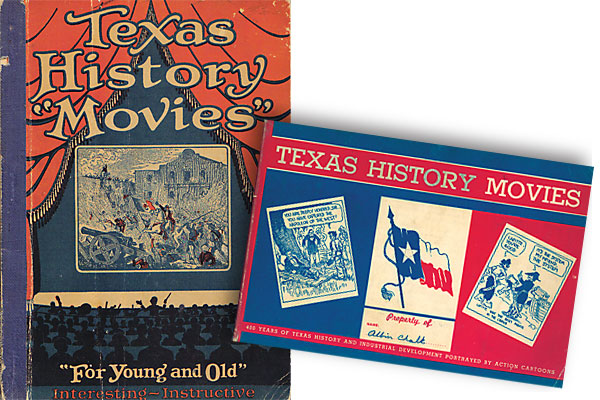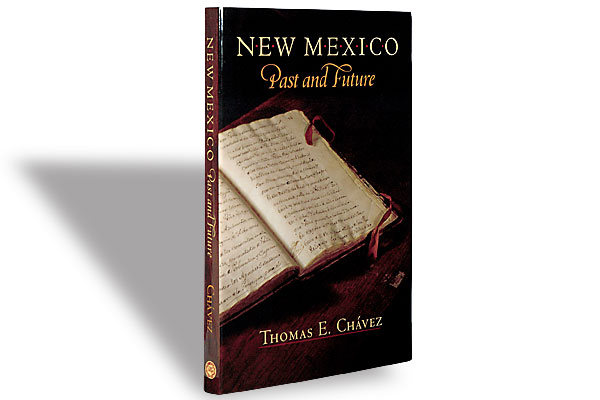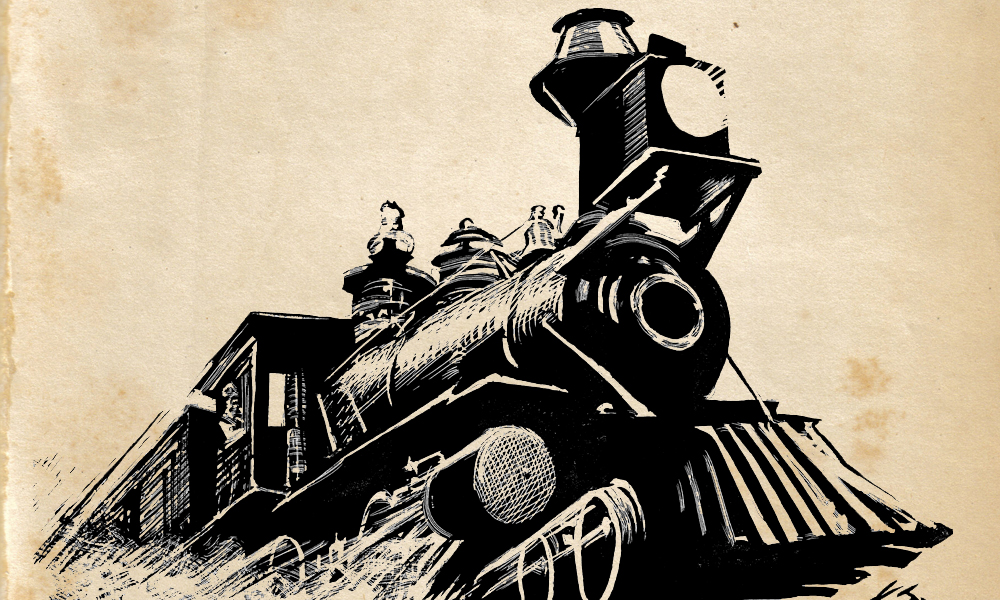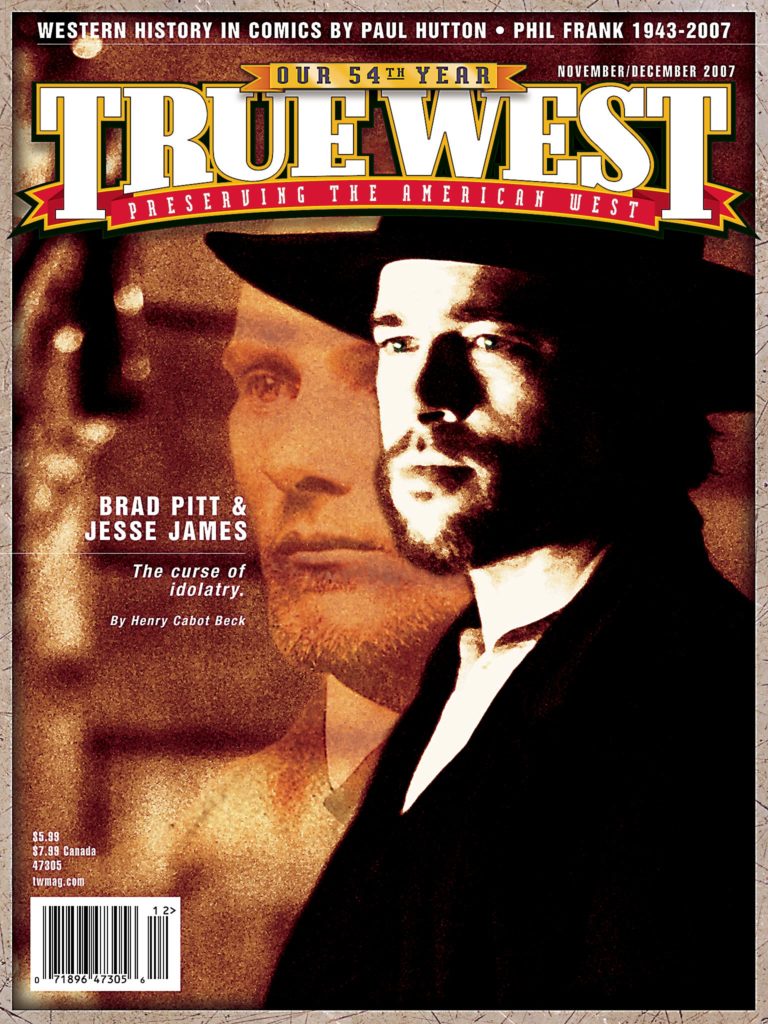
Texas History Movies—the name is not entirely accurate. Texas history? Yes. Movies? Nope, they’re comic books.
These comics were once a major influence on Lone Star students learning about the state’s past. And they might be once again.
Our story dates back to 1926. E.B. Doran, the director of news and telegraph for The Dallas Morning News, had an idea for a new feature—a cartoon series on state history. The newspaper’s editors hoped it would be “entertaining as well as educational.” They called it Texas History Movies.
The strips looked like other comics of the period. The drawings were, well, cartoonish. Historical characters, like Davy Crockett and Sam Houston, expressed their thoughts in an earthy and surprisingly funny fashion. In one case, the comic told the story of the Father of Texas, Stephen Austin, prior to his arrival in Texas, when he took a job at the Louisiana Advertiser newspaper. The strip showed him busy at a desk, reviewing copy. A young man comes up to him, saying, “Rush this, Steve.” Austin says, “I hate to kill news items for these ads.”
Here and there, panels contained no pictures, just narrative—a direct rip-off from the silent movies of the time (and that’s the source of the name).
The depictions of blacks, Hispanics and Indians were pretty racist, to be honest. Mexicans were often called “greasers,” Indians, “injuns,” and so on and so forth. Texas History Movies were not PC.
Yet these comics were wildly popular with readers of all ages. Teachers used them in the classroom, and before long, they pressured the paper to compile the comics in book form. In 1928, the P.L. Turner Company published the entire series in hardcover. That same year, the Magnolia Petroleum Company (later, Mobil Oil) put out a softcover version—and offered it, free of charge, to schools across the state. This was a big deal; Texas History was (and is) a required seventh-grade course. Over the next 30 years, millions of copies were printed and distributed.
Texas History Movies left their mark. “Kids remembered the images and captions,” says Texas historian and author Bill O’Neal, who read them over and over again as a kid. “It may have been comic-book shallow, but you retained much more of it than textbook material. Ask native Texans of a certain age—say between 45 and 90—and many will tell you, they retained more than information; they’ve kept their Texas History Movies booklets for all these years.”
Mobil dropped its sponsorship in 1960. Some said the racial stereotypes were the cause. Others believed that the corporation was afraid it would have to offer similar books to every state in the union. In any case, teachers still used Texas History Movies in the classroom. P.L. Turner and the Texas State Historical Association sporadically released new editions over the next three decades—with a more realistic portrayal of minorities.
By the 1990s, though, traditional textbooks were replacing Texas History Movies in the classroom. But out of sight didn’t mean out of mind.
Comic book artist Jack Jackson thought about them. Texas History Movies had changed his life, influencing him to become both an underground cartoonist and a historian in the 1960s. A few years ago, he decided to honor his roots. Jackson aimed to produce a new version of the booklet. His drawings were more realistic and racial stereotypes were out, but he borrowed the slang and humor that were hallmarks of the originals.
Earlier this year, to great fanfare, his version of Texas History Movies was published by the Texas State Historical Association. Reviews of the book have been almost universally positive. Some seventh-grade teachers have already incorporated it into the curriculum. Sadly, Jack Jackson wasn’t around to bask in the glory—he died in 2006, just after finishing the project.
Jackson’s work, though, has a good chance of making a huge impact. Over the past decade, studies have consistently shown that students (and pretty much everybody else) in this country just don’t know much about history—in spite of all the bells and whistles of high-tech tools that are supposed to help the learning process. Maybe, just maybe, it’s time to look to the past for answers on how to teach history.
So dim the houselights, raise the curtains and turn off the cell phones. Texas History Movies are about to roll again.





